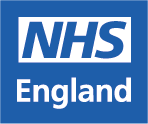Local health economy and regional stakeholders of the NHS Diabetes Prevention Programme
Overview
5 million people in England are at high risk of developing Type 2 Diabetes, with that number rising every year. Estimates suggest that the number of people with diabetes will rise to 4.2 million by 2030, affecting almost 9% of the population.
Type 2 Diabetes is largely preventable. There are common, modifiable risk factors for developing Type 2 Diabetes - in particular sedentary behaviours/physical inactivity and obesity.
In 2016 NHS England in partnership with Public Health England (PHE) and Diabetes UK launched the Healthier You: NHS Diabetes Prevention Programme (NHS DPP): the first nation-wide Type 2 Diabetes prevention service.
The programme delivers behavioural interventions that are predominantly in-person and group based, providing personalised support and motivation to participants to achieve three core goals:
- Achieve a healthy weight;
- Achieve dietary recommendations; and
- Achieve CMO physical activity recommendations.
The national service specification for the programme is based on best evidence following a 2015 Evidence Review undertaken by PHE.
In April 2016 a Framework of 4 national providers was put in place and a series of mini-competitions run with local health economies to call-off services across England.
From 2018 we expect to have a provider of services commissioned through the programme in place in every Sustainability and Transformation Partnership (STP) in England.
Why your views matter
NHS England is now consulting on proposals relating to the re-procurement of the NHS DPP Framework from November 2018 running for 3 years with the option to extend for a further year.
This survey is for primary care, local health economy and regional stakeholders. Please read the full accompanying document to this consultation before completing. It will also be helpful to have this document open whilst completing the survey.
Audiences
- Academic/professional institutions
- Advocacy or support organisations
- All interested stakeholders
- All NHS England Staff
- All NHS Staff
- All P&I staff
- All TCO staff
- Allied health professionals
- Area Team directors
- Art therapists
- Care Quality Commission
- Care-givers
- Carers
- Charities
- Childcare providers
- Chiropodists/podiatrists
- Clinical Nurse Specialist
- Clinical psychologists
- Clinical Reference Groups (CRGs)
- Clinicians
- Commissioners
- Communications
- Community groups
- Community healthcare trusts
- Deaneries
- Dental surgeons
- Dentists
- Department of Health
- DH third sector strategic partners
- Diagnostic radiographers
- Dietitians
- Directors of public health
- Doctors
- Drama therapists
- Employee representatives
- Employer representatives
- Event attendees
- Foundation trusts
- General Practice Nurses
- GP Practices
- GP Practices
- GPs
- Health and Social Care Information Centre
- Health and Wellbeing boards
- Health care assistants
- Health Education England
- Health Protection Agency
- Health visitors
- Healthcare scientists
- Healthwatch (national and local)
- Higher education institutions
- Independent sector nental health providers
- Informatics professionals
- Information professionals
- Information providers
- Internal staff only
- Local authorities
- Local Government Association
- Managers
- Mental health trusts
- Midwives
- Monitor
- Music therapists
- National directors
- National Institute for Health and Care Excellence
- Neonatal and maternity staff
- New Care Models
- NHS England Partnership Organisations
- NHS Trust Development Authority
- Nurses
- Occupation therapists
- Oncologists
- Ophthalmic practitioners
- Organisational Change and Programme Delivery Team
- Orthopists
- Orthotists
- Paediatric neuropsychologists
- Paramedics
- Patient groups
- Patients
- Patients and the public
- Pharmaceutical Industry
- Pharmacists
- Physiotherapists
- Policy leads
- Practice managers
- Primary care
- Prosthesists
- Quality Surveillance Groups
- Radiologists
- Receptionists
- Referrers to PET CT
- Regional directors
- Regulatory bodies
- Responsible officers
- Retailers
- Royal Colleges
- Service providers
- Service users
- Social care providers
- Speech and language therapists
- Staff and organisations across the health system
- Strategic clinical networks (SCNs)
- Suppliers
- Therapeutic radiographers
- Trade unions
- Tribunal service
- Voluntary groups
- West Midlands DCO staff
Interests
- Primary care

Share
Share on Twitter Share on Facebook